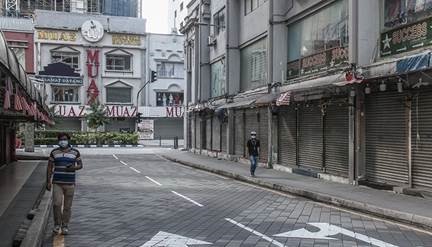
PETALING JAYA: The government needs to curb corruption at all levels, stop leakages and ensure that the best companies are awarded contracts to carry out projects for the 12th Malaysia Plan (12MP) to work, said an economist.
Yeah Kim Leng of Sunway University said the five-year plan was a continuation of the 11MP in terms of strategies and programmes with several challenges thrown in such as achieving gross domestic product (GDP) growth of 4.5% to 5.5% in 2025 and raising the average household income to RM10,000 in the next four years.
“The challenging part is the implementation,” he told FMT.
Yeah said companies needed motivation to be competitive and the government should push the private sector to lead in economic recovery.
“It’s not the government’s role to be in business,” he said.
“It is supposed to provide a conducive environment for the private sector to operate and complement it with a skilled workforce, good training, good governance, and efficiency without financial scandals,” he said.
The government needed to focus on enhancing its delivery system and ensuring transparency.
“There is nothing complex about achieving the five-year plan. Let the private sector take the lead and support it by providing a good environment, policies, laws and political stability,” he added.
“That is the basic foundation that will strengthen investor and public confidence”.
If the government carries out institutional reforms for good governance, he said “it would translate into a tsunami of projects as investors gain confidence in the public system.”
He said Malaysia’s strengths included its strategic location and its multi-cultural background which would attract more foreign investors into the country.
Geoffrey Williams of Malaysian University of Science and Technology (MUST) said the 12MP was an ordinary plan for extraordinary times.
“It looks like a template of earlier plans with very little acknowledgement that the Malaysian economy has been traumatised by the lockdowns and is now in a very serious state,” he told FMT.
He said it was crucial to recognise that the impact of the pandemic has had a structural effect on the economy after Bank Negara suggested that the GDP growth had fallen from the previous 4% to 5% to perhaps 2.5% -3.5%.
Another surprise was the target growth rate of 4.5% -5.5% by 2025 when the government admitted average growth under the 11MP was only 2.7%.
“This is surprising because Bank Negara had said earlier this year that the structural impact of the lockdowns has reduced underlying growth by between 1.3-1.5%.
“If you base plans on forecasts of 4.5%-5.5% growth, they are almost certain to fail from the start,” he said.
The plan should not have another list of targets, themes, enablers and game changers. “It needs to be simpler in the current recovery phase, which will take many years.
“The focus must be on basic issues such as growth, incomes, income equality, creating meaningful well-paid jobs, rebuilding SMEs, supporting micro-enterprises and restoring a competitive enterprise-driven economy, ” he said.
It must also focus on promoting social safety nets, rebuilding pension schemes and social assistance and reinvigorating a vibrant domestic investment and FDI environment, he added.
There are also missing connections between the programmes announced and job creation.
“How many jobs will the green growth agenda create, for example? Will higher environmental regulations reduce growth and employment?
“Similarly, with the technology agenda, we know that many fourth industrial revolution technologies will replace jobs. That is what they are specifically designed to do.
“So what is the net impact on job creation? Will this create high unemployment which will force down salaries?,” he said, adding that there was no analysis on this.
Source: https://www.freemalaysiatoday.com/category/nation/2021/09/28/let-private-sector-take-the-lead-in-12mp-projects-says-economist/

